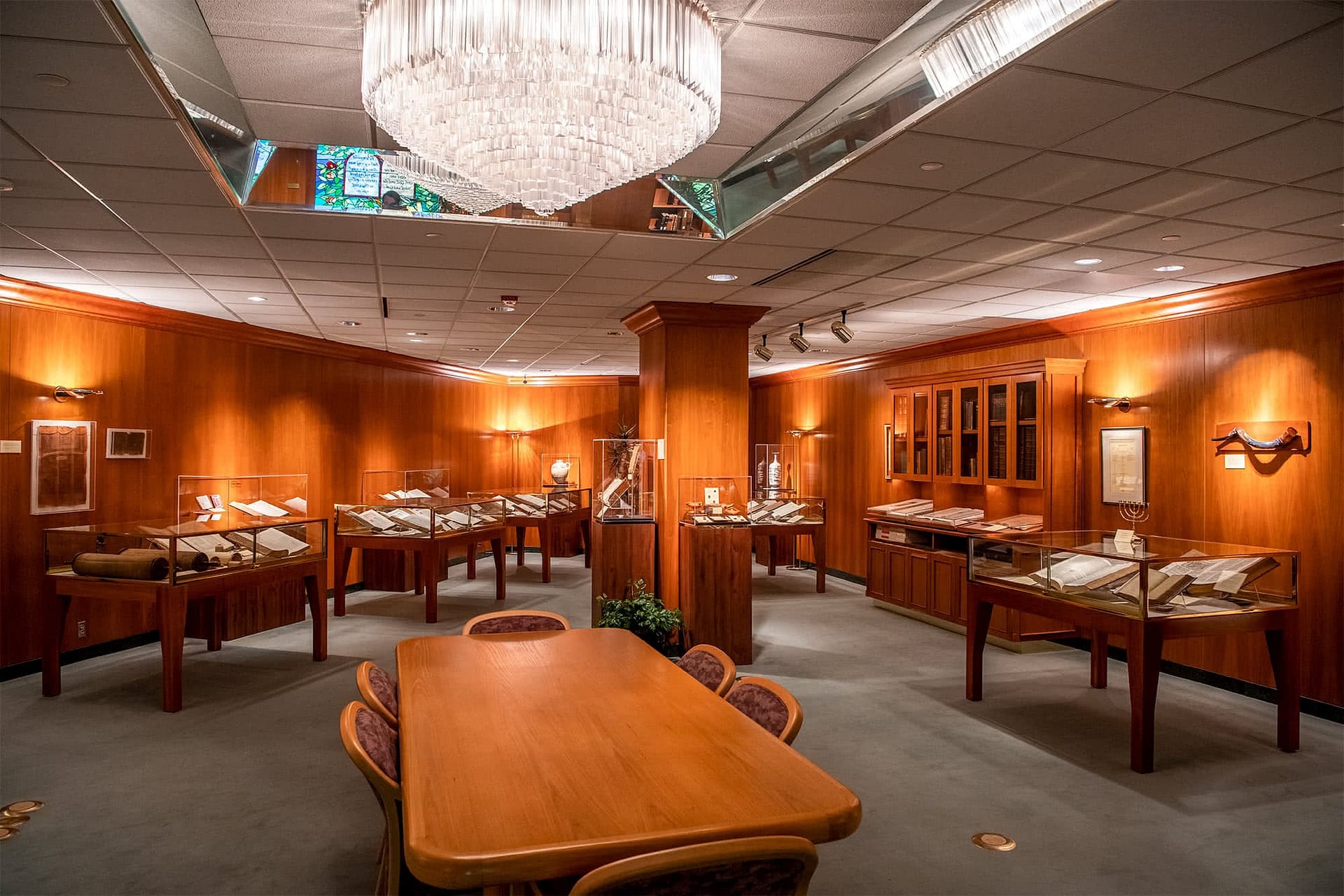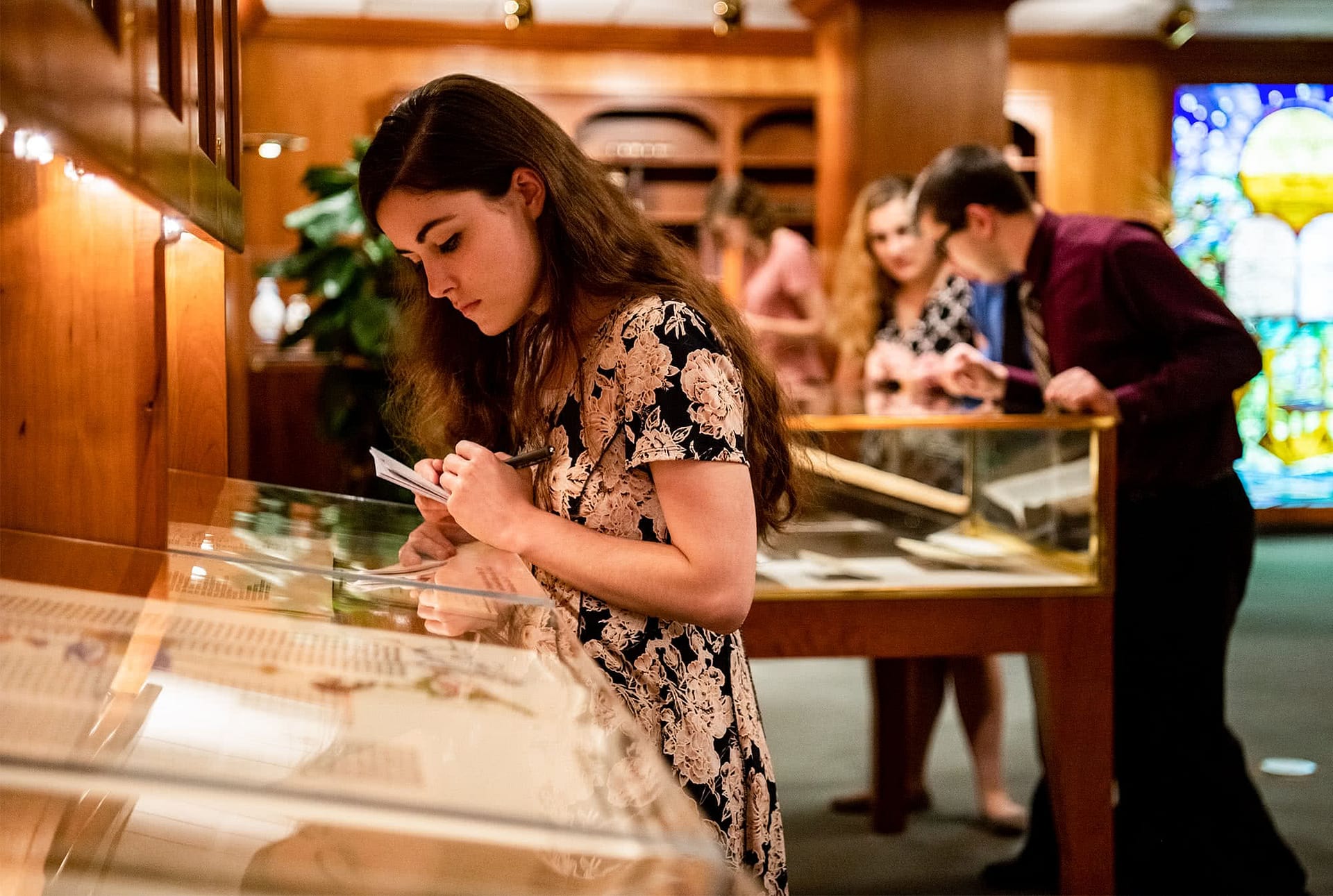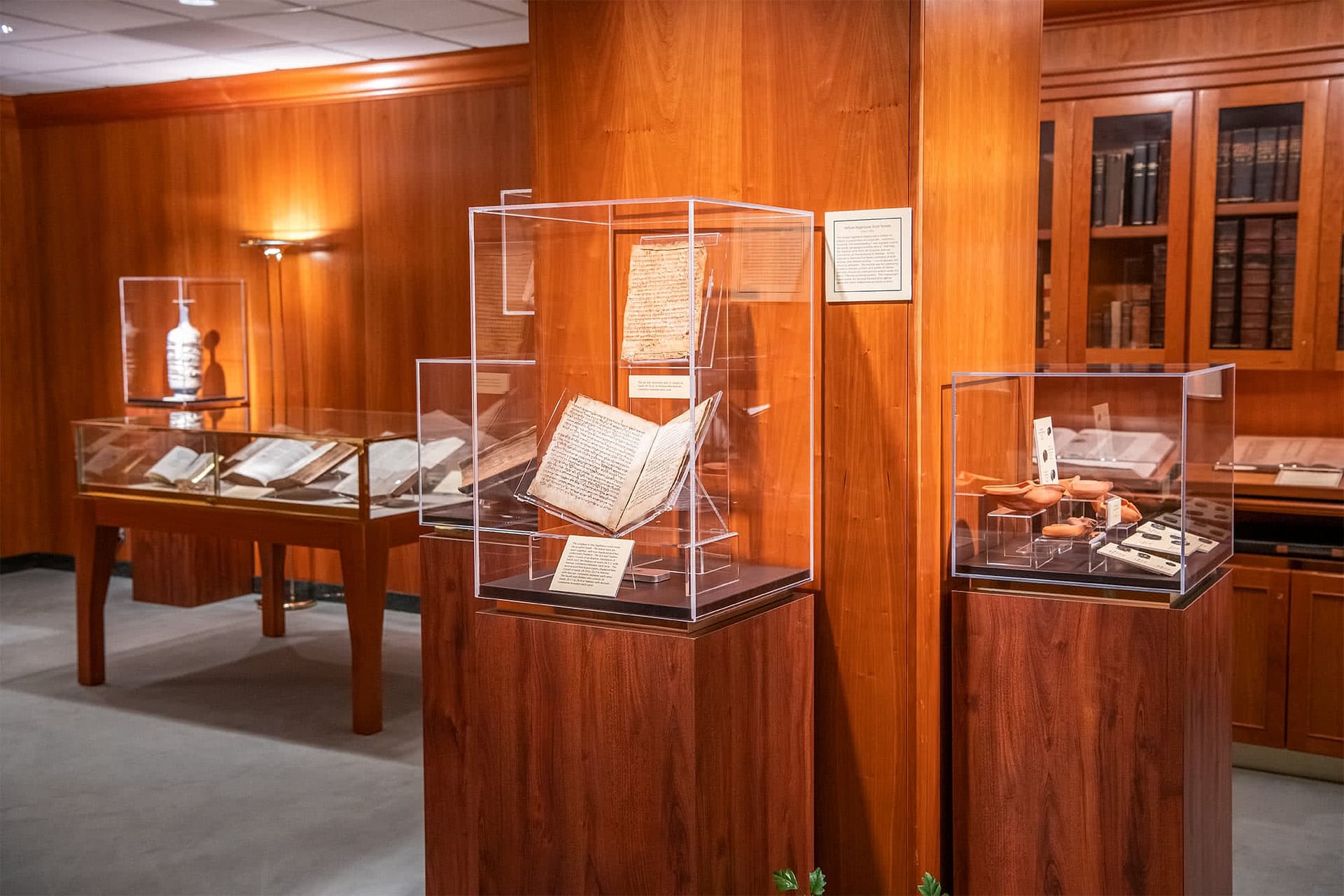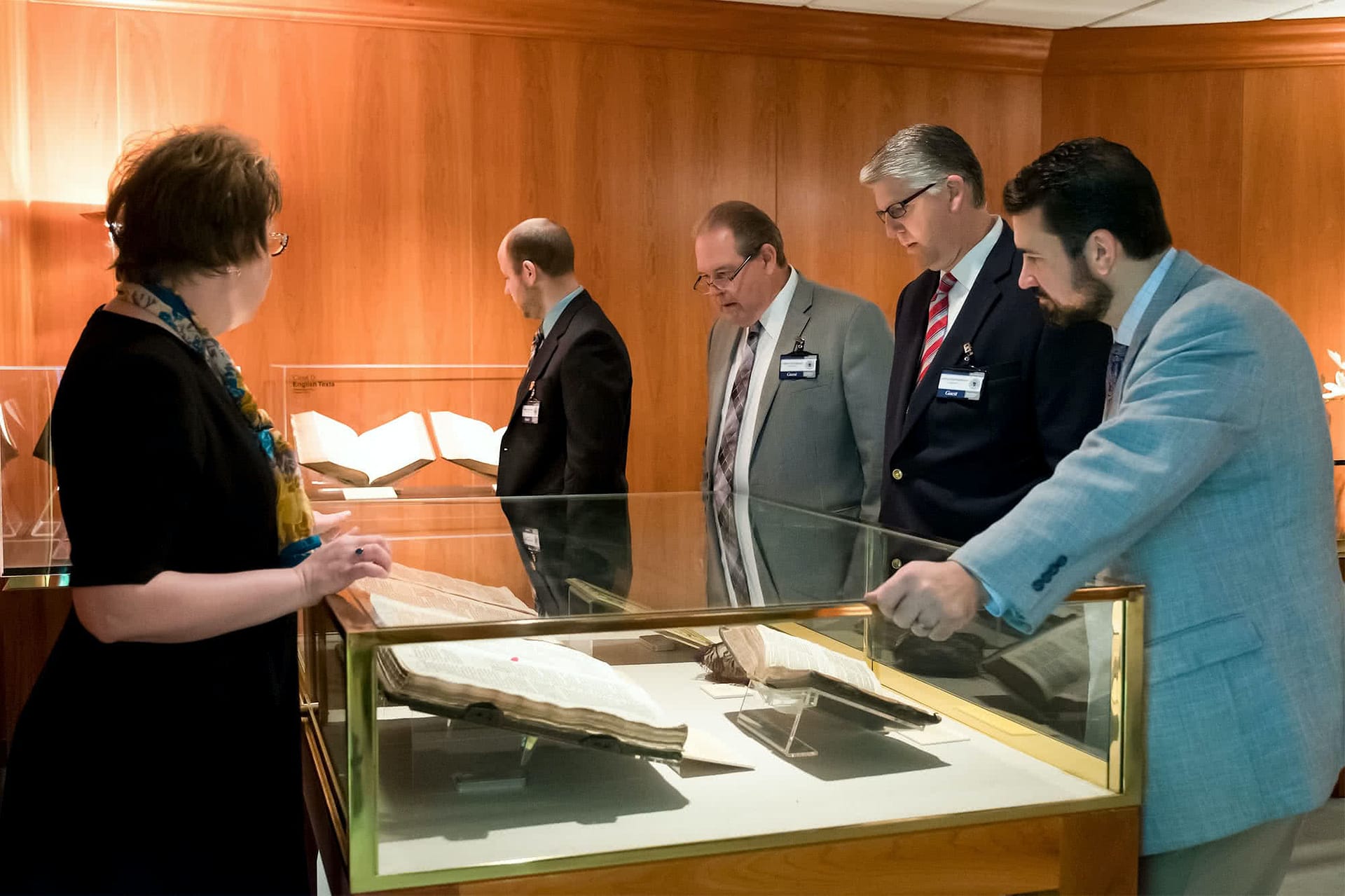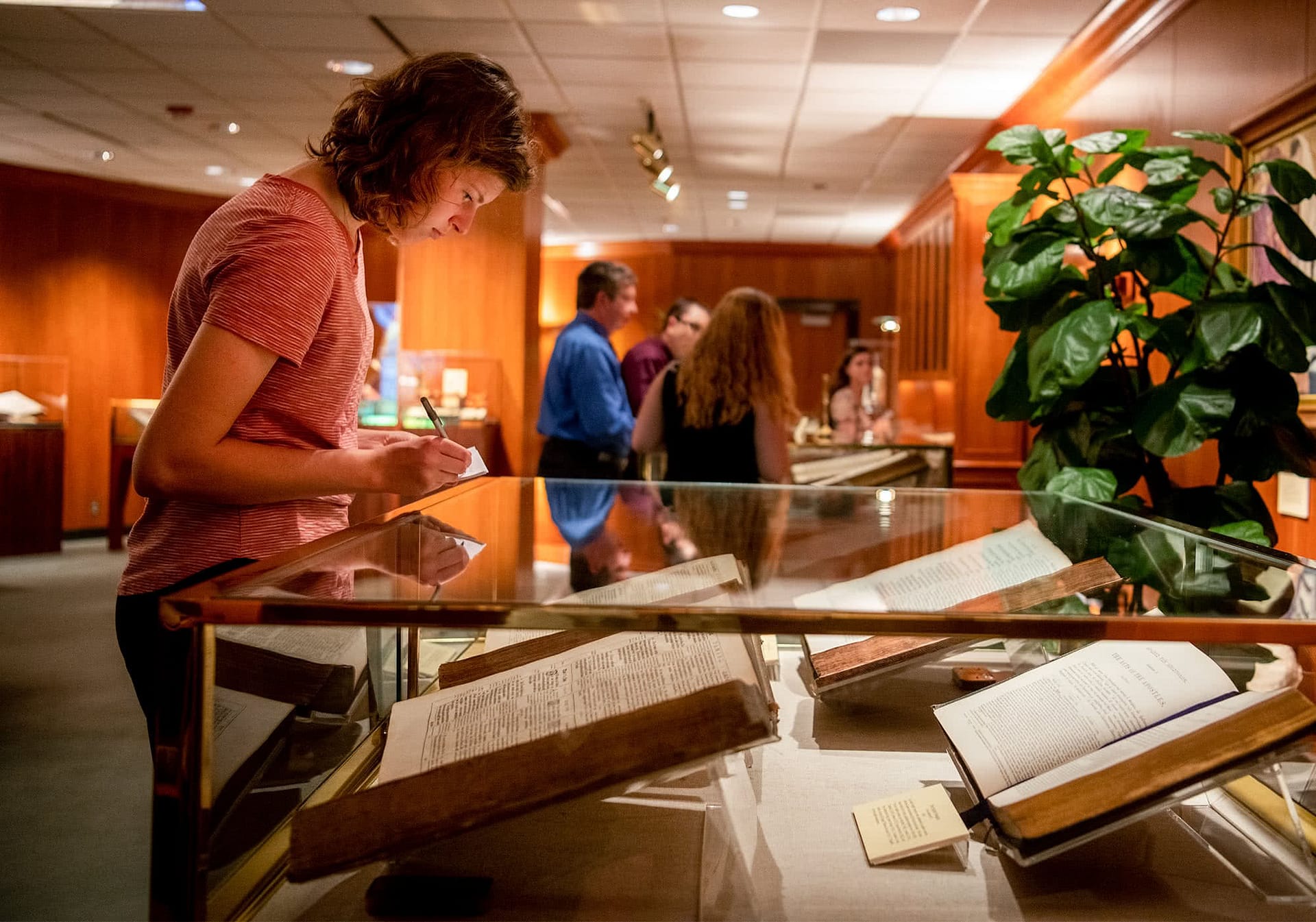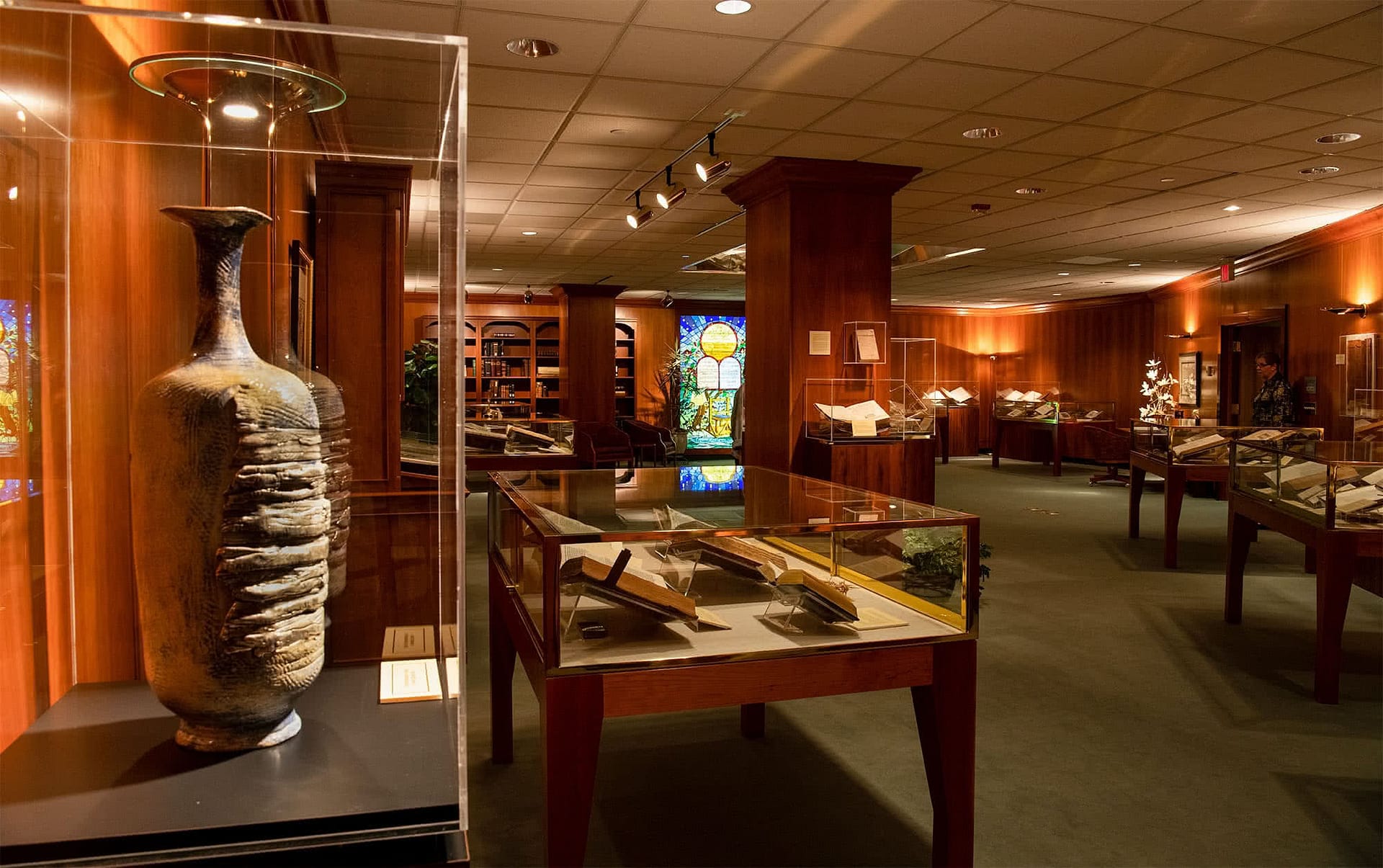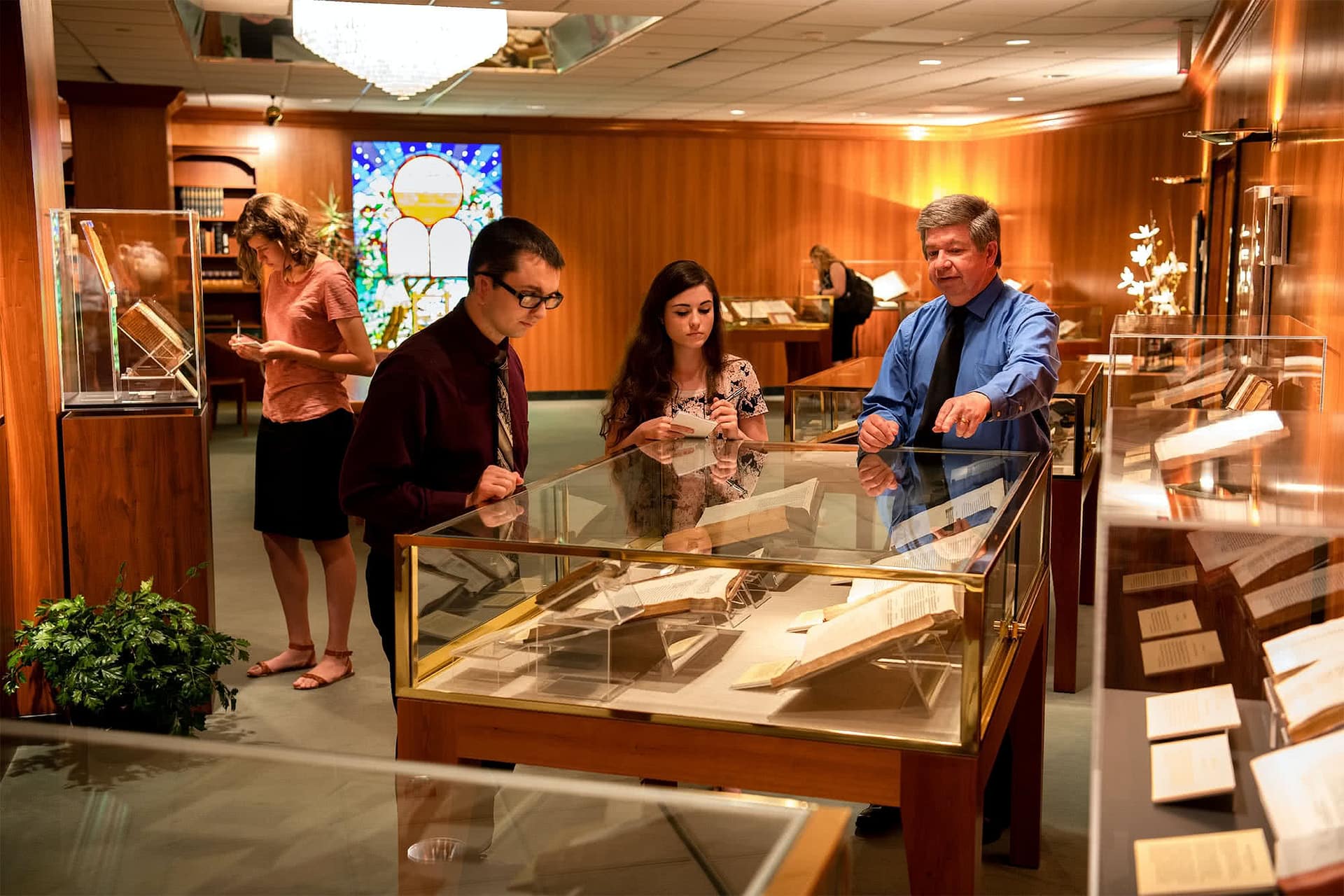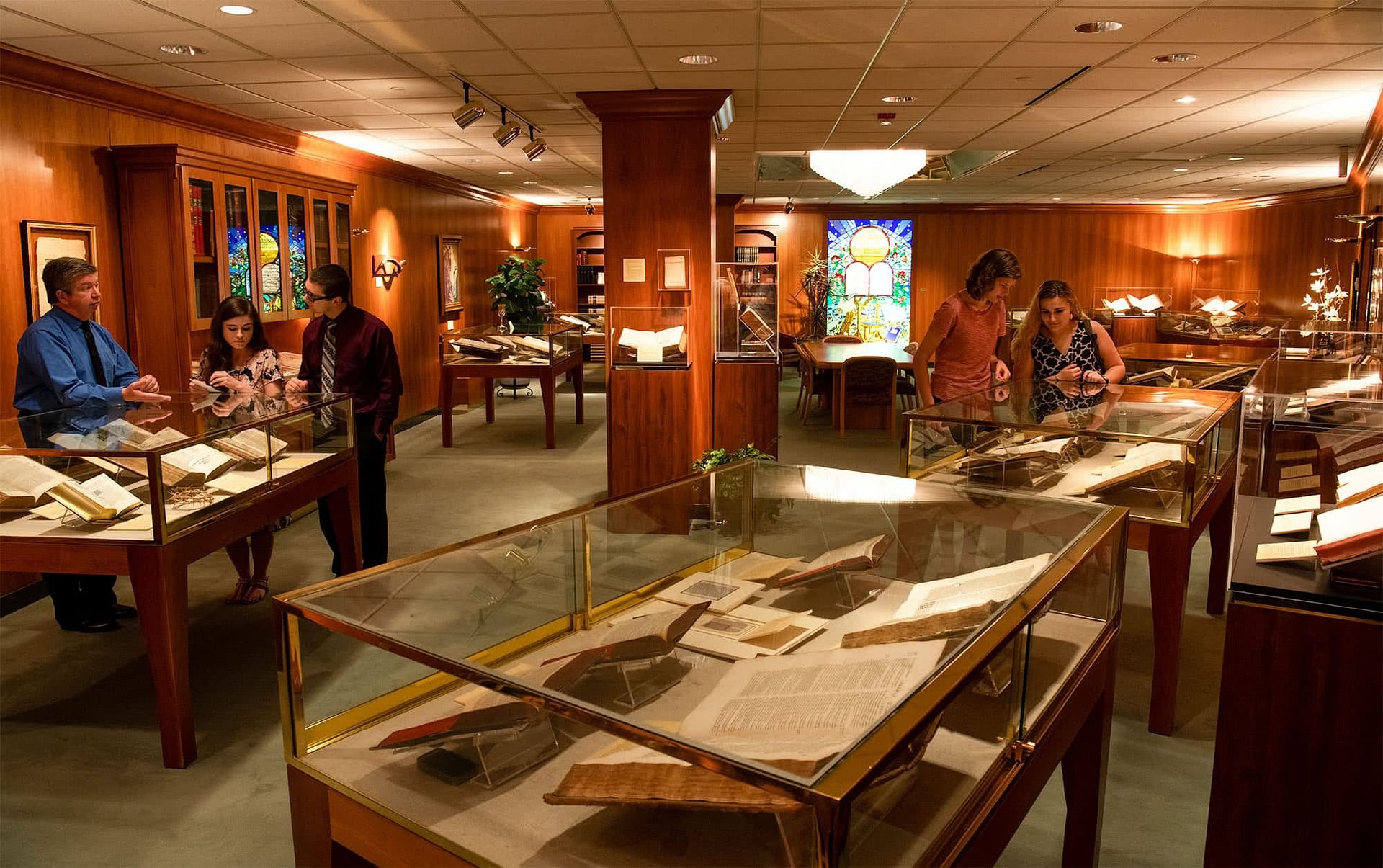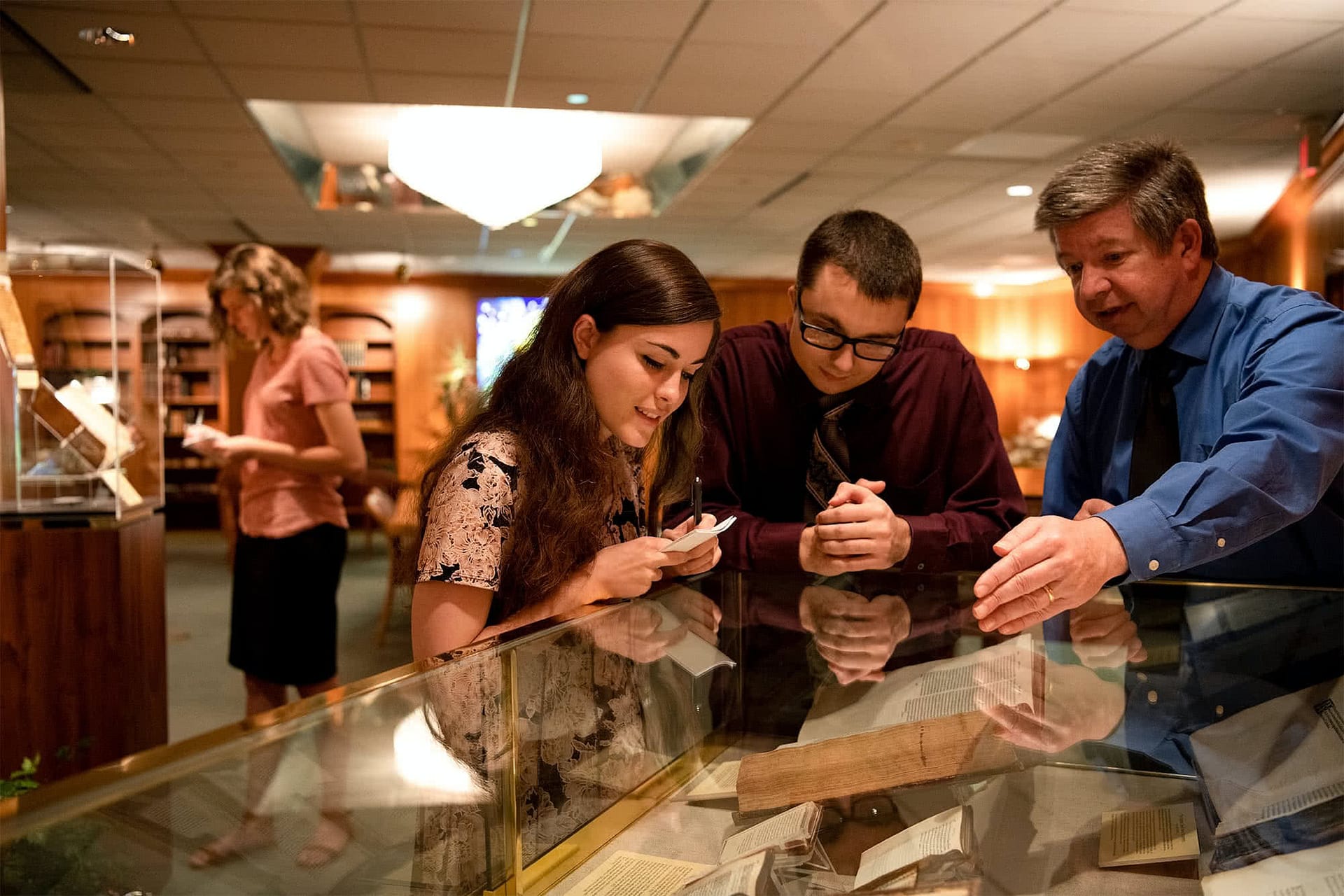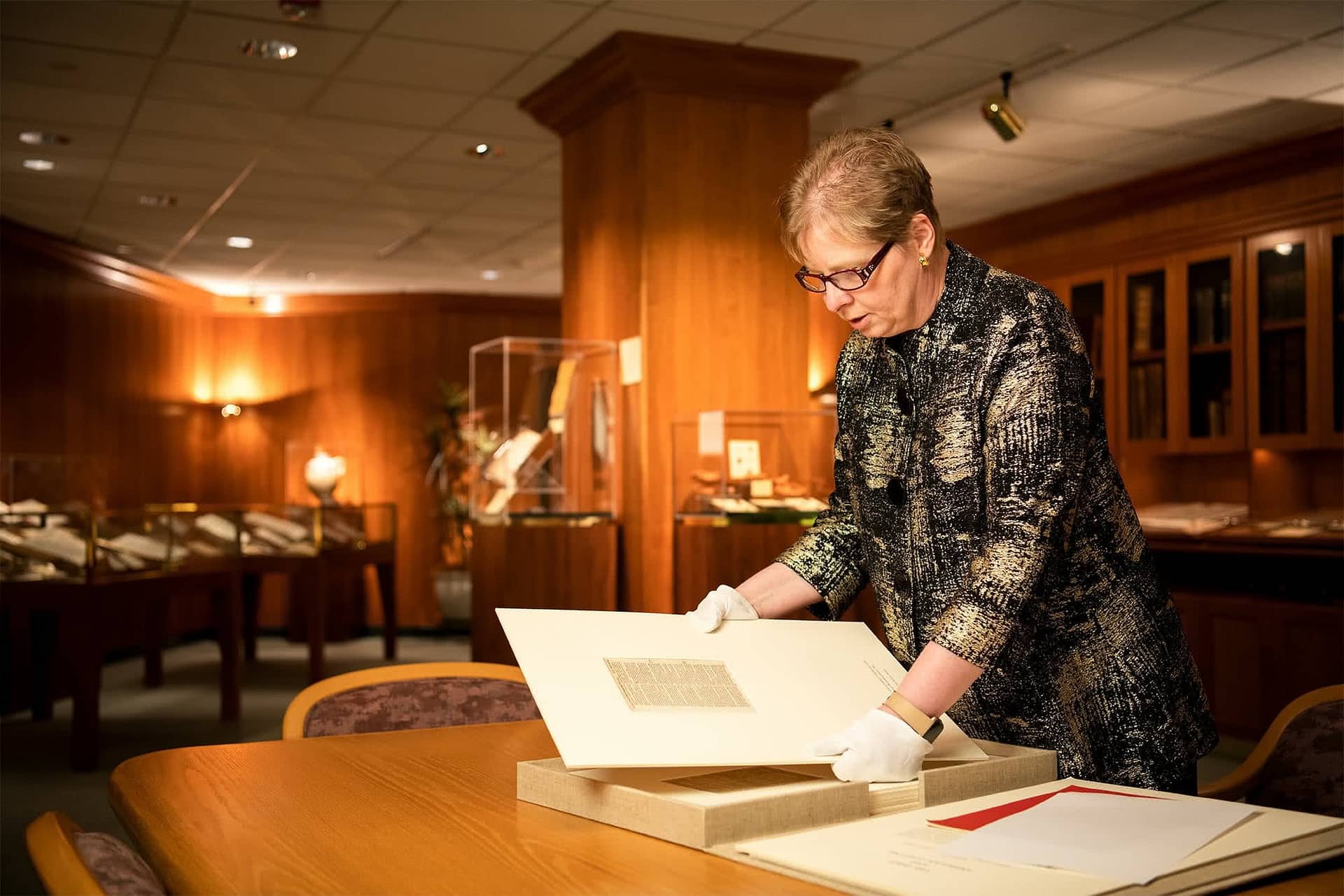A brightly lit stained-glass window adorns a wood-paneled wall while display cases filled with artifacts line most of the others. The air, crisp and cool, is set to exactly 71.5 degrees Fahrenheit with 40 percent humidity to help preserve the objects housed inside this special room. Though the level of care given to this room matches what many would associate with a large museum, it may surprise some that, tucked away in PCC’s Rebekah Horton Library, is the Bible Manuscript Room.
Since 1993, students and guests have been invited to tour the Bible Manuscript Room, which is home to over 100 Bibles and related artifacts such as historical coins, oil lamps, and even a cuneiform clay tablet. A few Bibles have been added over the years, including the first ever Received Text-based Bible published for the Runyankore-speaking people of southern Uganda. This Bible, donated by Campus Church’s assistant pastor, Dr. Tim Zacharias, represents eleven years of effort.
Other pieces in the Bible Manuscript Room include a Gutenberg facsimile, Erasmus Greek New Testaments, and a Geneva Bible designed with yellow pages for reading by lamplight. Two notable Bibles on display are a pair 1611 King James Version Bibles, in which the first edition includes a misprint where it refers to Ruth as a “he,” and the second edition shows its correction. The collection also includes a Bible signed by General William Booth, founder of the Salvation Army, and a small New Testament that Florence Nightingale gave to a soldier during the Crimean War. The Bible Manuscript Room even has a piece of a scroll from the 1300s and a temple dedication brick written in cuneiform.
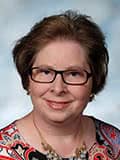
Many of the Bibles were added by Pensacola Christian College founders Drs. Arlin and Rebekah Horton, who began collecting, purchasing, and accepting donations of rare Bibles in the early 1980s. They recognized the value that comes from being able to learn the history surrounding the preservation of the Bible. The Bible Manuscript Room “was an answer to prayer,” explained Sherri Lefmann, curator for the Bible Manuscript Room.

“I remember walking through the room for the first time and being impressed with the level of care that had clearly been put into making the different volumes and editions, from Hebrew scrolls all the way up to the KJV,” said Duncan Aldrich (English ’21), who visited the room when he came as a camper for Teen Extreme six years ago. As a student, Duncan worked in the Library and even gave tours of the Bible Manuscript Room himself.
“Knowing the history of the English Bible is important because it allows us a confidence in using the Bible that we have today,” said Duncan. “I was challenged by the fact that some of the manuscripts were illegal when they were printed, and people were willing to carry them around even though they and possibly their whole family could have been executed if they were caught with those Bibles.”
One Bible in the Manuscript Room that represents this danger is a 1566 edition Tyndale Bible. This Bible is a favorite of Lefmann because it, as do the other Bibles in the collection, reminds her that “God has given to us an inheritance incorruptible.” Because of his translation work, Tyndale was labeled a heretic and was sentenced to death. During his life, his Bible translation was banned, and many of the Tyndale Bibles were collected and burned. “This 1566 edition survived, a reminder of the life of one man and the price he was willing to pay to give us a Bible in the English language,” explains the artifact’s description card, written by Miss Gloria Cooper, the Manuscript Room’s first curator.
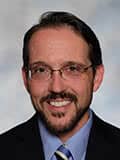
Bible faculty Dr. Rob Small reflected on his first time visiting the Bible Manuscript Room. “I remember thinking it was like a museum of treasures, containing truly the greatest treasure of all—God’s Word.”
Dr. Small’s Church History I (BB 411) students tour the Bible Manuscript Room each fall with Steve Bazis, the assistant library director. “[The Manuscript Room] is physical evidence for God’s providential preservation of His Word, the Bible,” Dr. Small said. “We want our students to embrace this vital Bible doctrine, and the Manuscript Room shows them that they can trust what God’s Word says about itself in Scripture.”
If you’d like to learn more about the Bibles found in the Bible Manuscript Room, please contact PCC’s Library Circulation Desk the next time you’re on campus. A tour guide would be honored to give you a tour.

